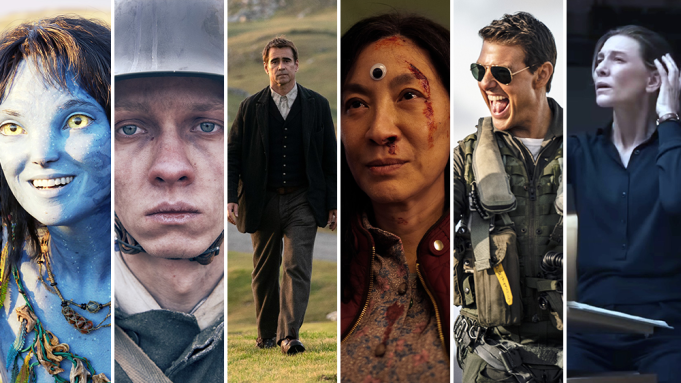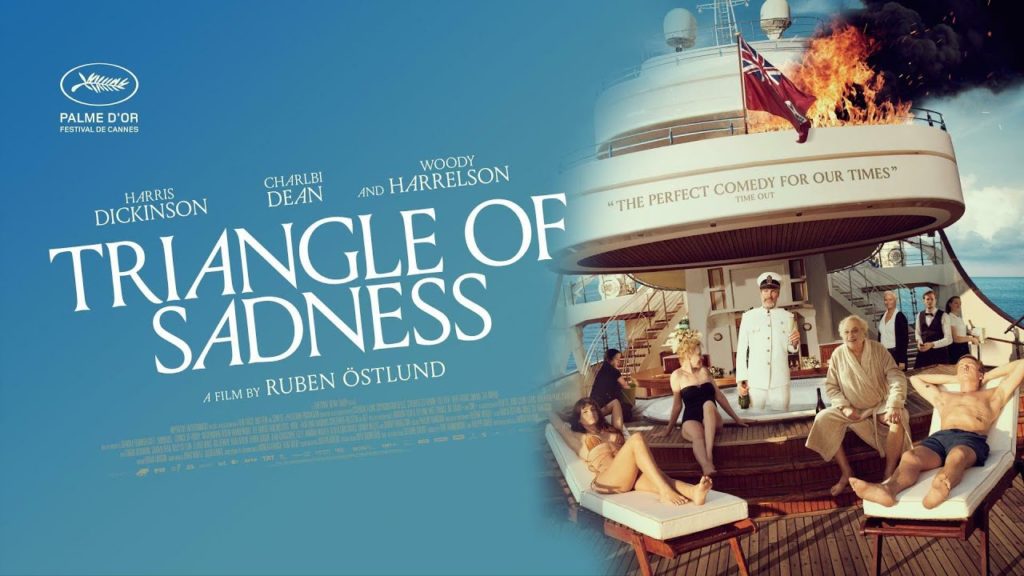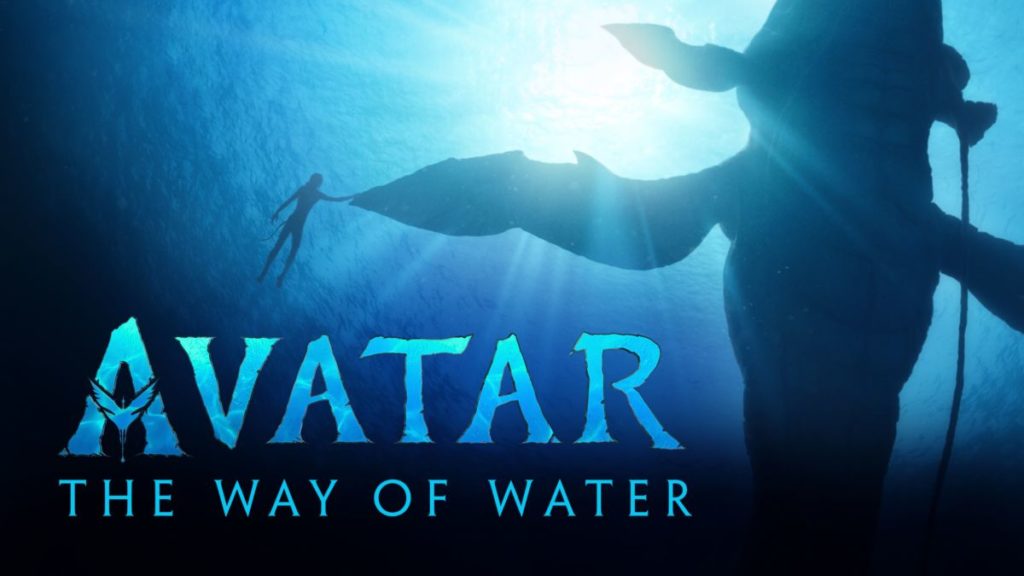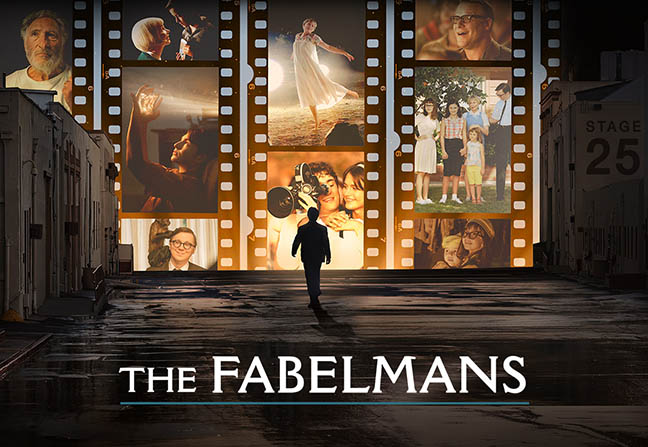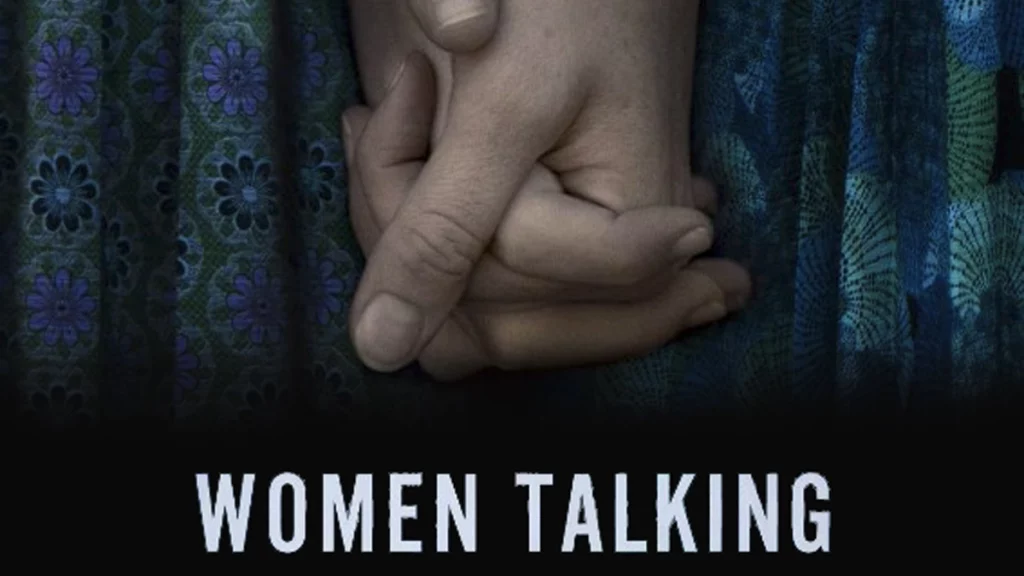10. White Lotus of the Flies
What’s it about? A disastrous luxury yacht cruise strands two models, some billionaires, and a handful of crew on an island, where it turns out no society is immune to wealth-based power imbalances, even if “wealth” shifts meaning.
So this looks at how wealth and power affect people and their relationships through three acts- the romantic relationship of model/influencer Yaya and less successful model Alex; the way the privileged one per centers impact the yacht’s crew; and how everything changes on the island, once material wealth is replaced by “capacity to survive.” And I’m okay with all of that, but… the three acts don’t gel. They don’t form a cohesive whole for me, and at nearly two and a half hours I feel like I’m not a jerk for wanting one. The second act has a lot of facets, and the third tosses out a lot of them by scaling back the cast so drastically and bringing someone we’d barely glimpsed front and center. Which, of course, also plays into the themes: the woman who rises to power on the island being someone we’d barely thought about until now. But still, it made the whole movie disjointed. And took the idea of wealth-based power imbalance and said “Actually both sides are bad” because they didn’t want to demonize billionaires.
Also if you’re making your movie 147 minutes long I feel two of those minutes could be spent on a proper, less aggressively ambiguous ending. Like, there were easily five to ten minutes of story left. Did they have to ditch the actual last scenes because COVID lockdown started back up?
I just do not see why this movie made the shortlist when the sharper, better-made, better-written one percenter send-up Glass Onion didn’t. Nor do I see how it scored Best Director over more impressive cinematic feats like Babylon or half the movies on this list.
Where would I rank it? 65th, under You Can’t Take It With You and its better if still vague look at wealth’s affect on connections, and above Green Book, because “Hey look money makes things weird, I don’t know what to tell you” trumps “White man teaches black artist how to be black properly.”
9. Moulin Rubes
What’s it about? A dying Colonel Tom Parker walks us through the life and times of Elvis Presley, and how Colonel Tom both helped make him, and helped ruin him.
I thought if one thing could elevate this movie above basic, run-of-the-mill, Walk-Hard-without-jokes musician biopics it would be the signature stylism of Baz Luhrmann. And it’s there at first, but it mostly wears off, and we’re down to some by-the-books recapping of the notable moments in Elvis’ career, from his breakout to his comeback to when he started hitting the drugs.
A more interesting version of this would have laser-focused on the 1968 Comeback Special, the conflict between Steve Binder’s attempts to make a special to put the King back on the throne while Colonel Tom attempted to make him more milquetoast and palatable. The struggle between Elvis’ loyalty to the man who started his career, and the gnawing realization that the same man was now holding him back. Instead we just get another general overview.
Also they really just skate past how Priscilla was 14 when they met, they just skate right past that.
Where would I rank it? 64th, a couple of spots above The King’s Speech for being more visually interesting and better directed and not helping to pave the way for Cats, but just below Patton for having less to say.
8. Dances With Free Willy
What’s it about? Long after Jake Sully went full-native on the planet Pandora and helped kick the greedy human capitalists off-world, humanity is back with a hunger to pillage, and to avoid a resurrected Colonel Quarrich (now also a Na’vi Avatar) the Sully family must seek refuge with the sea clans. It’s everything James Cameron loves: Pandora, the beauty of the ocean, and a third-act climax on a sinking ship.
Okay so Avatar remains just a visual feast. Pandora is gorgeously realized, and the human beings and practical elements blend just seamlessly into the digital environment. It feels real and looks incredible on a big screen. Also unlike the last Avatar there’s no moment where I thought “Oh damn it this isn’t the climax, is it, there’s still a whole hour left, isn’t there.”
Now your enjoyment will vary depending on one big factor: the second act is all vibes. It’s just the Sully clan learning the titular way of water, fitting in (or not) to their new home, learning about the space whales and why they matter to the Na’vi, while we learn the far worse reasons humanity is interested in said whales. But the climax is very satisfying, if somewhat bogged down by the cycle of one Sully kid getting taken hostage, leading to two other Sully kids coming to the rescue, only for one of them to be taken hostage, so the other two… come on, James, our parking is expiring, cut down on the double-beats.
Where would I rank it? 55th, between two other movies that hinge on vibes over story: under Sunrise but over Nomadland.
7. The Storybergs
What’s it about? Young Sam Fabelman discovers a love for movie-making, a devotion to the cinematic arts, but while making movies gives him a way to process life and family hardship, it soon becomes the only way for him to process the world, and his greatest talent may form a permanent barrier between him and his family.
So this is Steven Spielberg making the Steven Spielberg story, but Tony Kushner is writing it, so… of course it’s good. It’s directed by one of the greatest known masters of the form with a Pulitzer Prize winner writing it. Where people get mixed up is thinking that it’s a story about the magic of the movies when actually it’s about how making movies is as much curse as it is gift.
Now, the issue becomes, real life does not adhere to a three-act structure. In this case, Sam dealing with antisemitic bullies is a late addition to the story that sucks up a lot of time. But the resolution is pretty solid so I can’t be too mad at it.
Where would I rank it? Probably 52, over a different passion project, Laurence Olivier’s Hamlet, but under Sound of Music. The sudden arrival of Nazis seemed more foreshadowed on that one.
6. Deceptively Innocuous Title
What’s it about? The women of an isolated religious compound are told they must forgive the men who have been raping them, or be excommunicated. A chosen group argue whether it’s better to endure the men’s abuse, leave the only home they’ve ever known for an uncertain future, or stay and fight to bring equality to the compound.
This one’s presented as “A work of female imagination,” so we needn’t get caught up in probabilities or the stylization of the dialogue. We can focus on how the movie frames the struggle present in gender relations: that while not every man is a predator, there’s no telling which could be. That a boy of 13 poses a threat to a girl of the same age, but could still be raised to be kind instead of cruel. If they leave, where will they go? If they stay to fight, what would that fight entail? What are they fighting for? What if they lose? Co-writer/director Sarah Polley gives multiple perspectives: rage, acquiescence, empathy, fear, hope, and the one man with dialogue who wants to be an ally but doesn’t know how.
Polley wisely never shows us the attacks or the attackers. Just the damage. We only witness what life under constant cruelty from men has done to the women. And allows us to realize that this is not a problem that only exists in this isolated commune.
It’s a tough topic and yet still less of a stone cold bummer than most of 2020’s crop. It’s talky, and at one point they all just sing a hymn while I’m internally screaming “The clock is ticking, ladies,” but overall, worth a watch, and while it has the least nominations of any of these movies, it’s good they made this particular shortlist.
Where would I rank it? Up at #41, between Rain Man and Unforgiven.
Next page: the really good stuff

